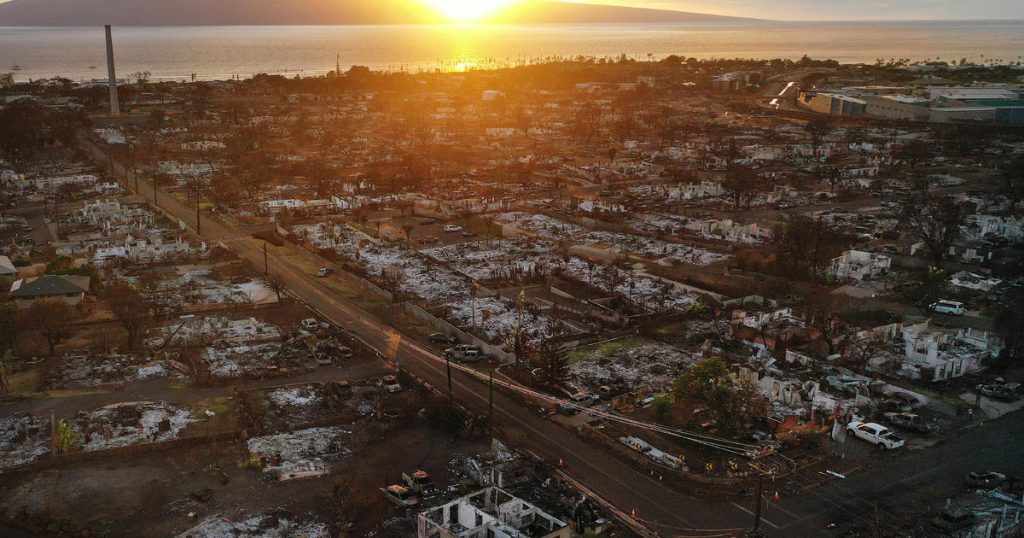A study conducted by researchers at the University of Hawai’i Economic Research Organization and the John A. Burns School of Medicine has found that the effects of the deadly wildfires that swept across Maui in August 2023 are still being felt nine months later. The fires killed 101 people and left the historic town of Lahaina in ruins. The study surveyed 679 individuals, two-thirds of whom lived in Lahaina during the fires. Nearly half of the participants reported a decline in their health compared to a year ago, with issues such as cardiovascular health complications and respiratory problems arising.
The report highlights that exposure to smoke, ash, and debris from the fires is strongly associated with worse physical health outcomes and reported symptoms. A significant proportion of participants are at a heightened risk of cardiovascular diseases, while some may suffer from compromised kidney function and poor respiratory health. Older adults, especially those aged 65 and older, seem to be more affected physically, with reported symptoms limiting their daily activities. The study also found an increase in depression and other mental health issues among participants, with a notable percentage reporting feelings of anxiety and low self-esteem.
Food insecurity is another major concern highlighted in the study, with nearly half of households surveyed experiencing food insecurity. Many participants had also lost their jobs because of the fires, leading to financial instability. This has had a ripple effect on their ability to access healthcare, with many reporting difficulties in accessing care and lack of health insurance. Researchers stress the importance of addressing these issues now to prevent long-term health conditions such as lung disease and cancer, to which the population is already more susceptible.
Researchers hope to enroll 2,000 people in the study to further analyze the long-term impacts of the wildfires on the affected communities. Many participants in the study have not sought medical care, either because their clinics were destroyed in the fires or because other essentials like food and housing took priority. Some individuals have reported struggling to perform daily activities due to the physical symptoms they are experiencing since the fires. It is crucial for these individuals to seek medical attention and pay attention to their health to prevent any potential future health problems.
The mental health impact of the fires seems to extend beyond those physically exposed to the smoke, ash, and debris, with a significant percentage of participants reporting feelings of anxiety and low self-esteem. Despite the challenges faced by individuals affected by the wildfires, there is a sense of resilience and determination among them to overcome the obstacles. The study aims to shed light on the long-term consequences of the wildfires on the affected communities and provide insights into addressing the health and mental health needs of the residents in the aftermath of the disaster.


